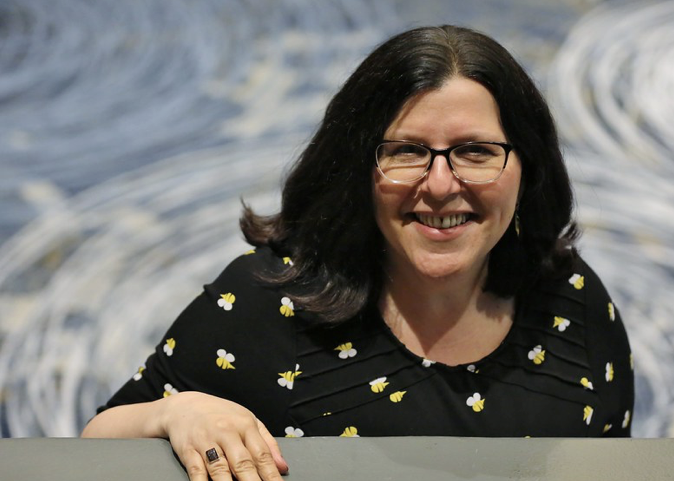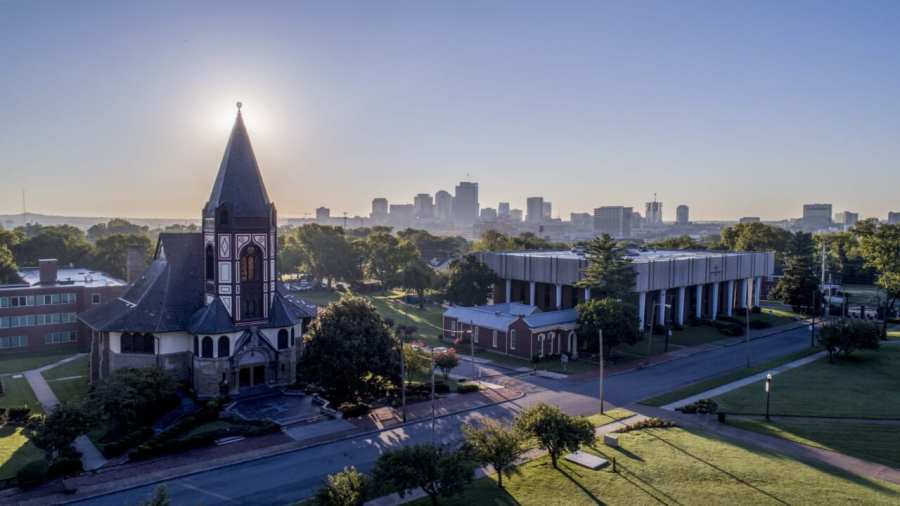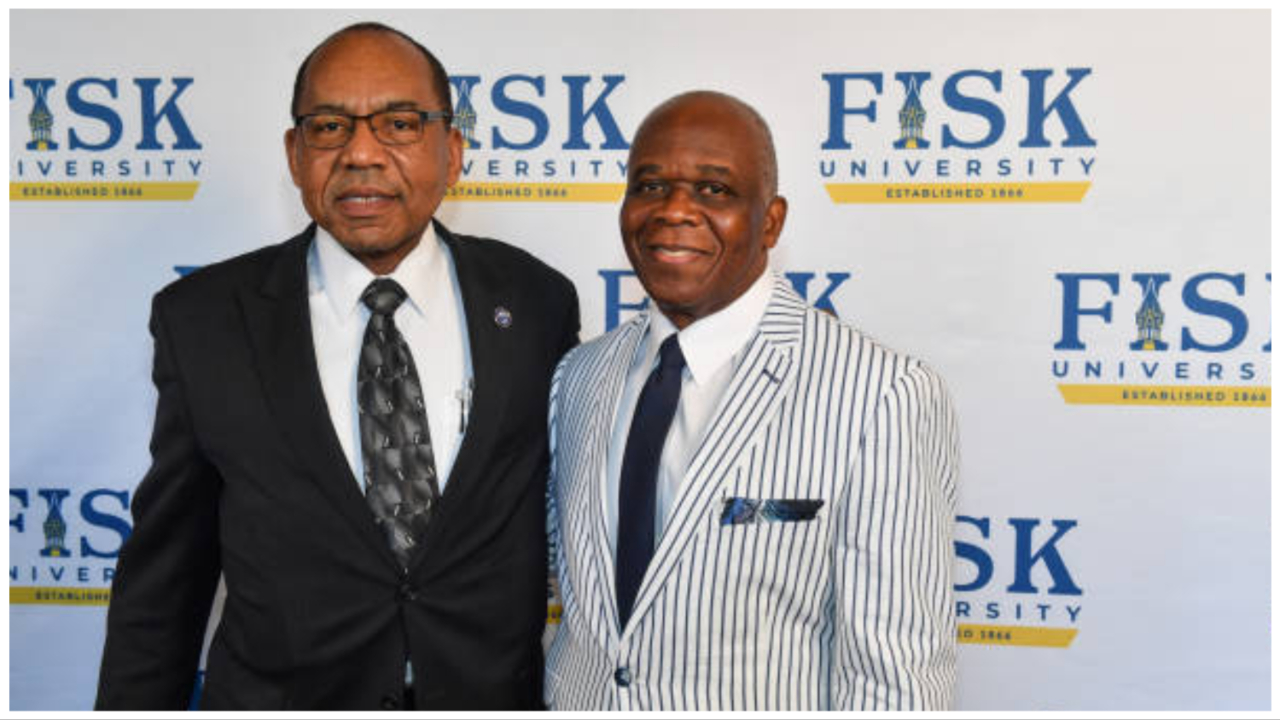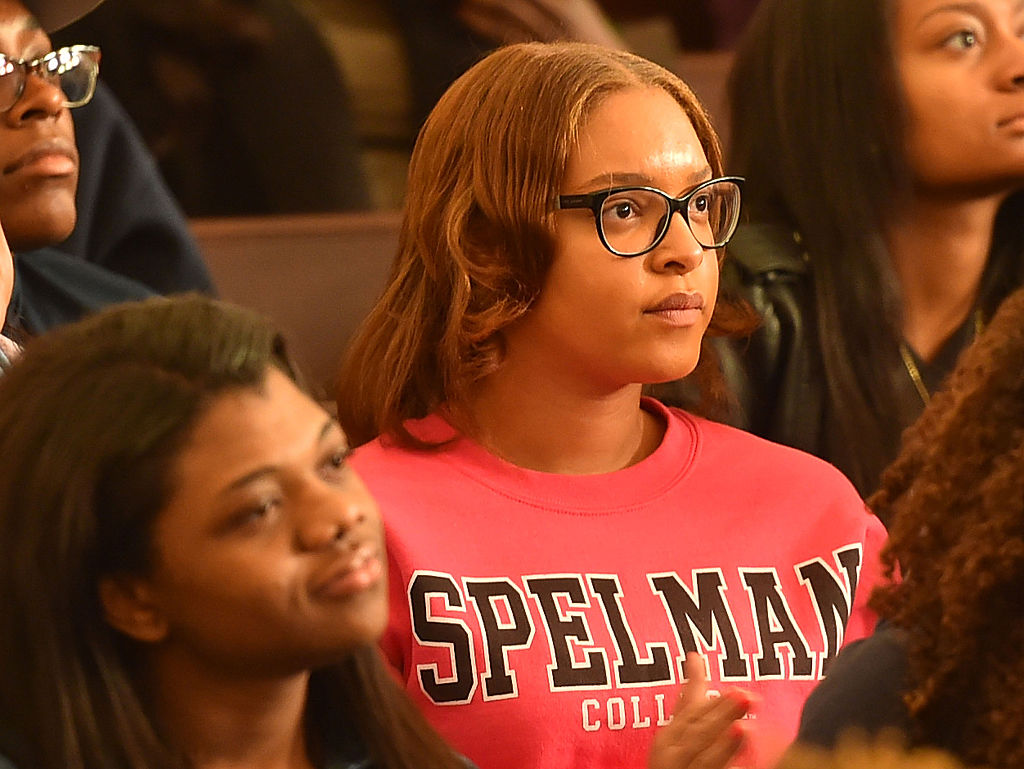Meet Marybeth Gasman: HBCU expert. Historian. And white
Marybeth Gasman refused to let white peers dissuade her from researching historically Black colleges and universities. "This is a history that everyone needs to know," she insists.
Marybeth Gasman, one of the nation’s foremost experts on historically Black colleges and universities, took her college advisers’ advice to heart.
“If you feel strongly and passionately about something, you should do it,” she remembered.
She’s taken “do it” to a new level.
Gasman serves as the Samuel DeWitt Proctor endowed chair in education and distinguished professor at Rutgers University, where she’s involved in leadership, equity and justice initiatives.

She’s written 35 books, and her latest, “HBCU: The Power of Historically Black Colleges and Universities,” will be published in November. She’s authored more than 300 articles (research papers, opinion pieces, book chapters for others), and 450 opinion essays and has visited 103 of the country’s HBCUs.
She’s a white woman who some of her peers once dissuaded from studying HBCUs and now champions their causes in opinion pieces for major publications such as Forbes. Her works include “Why It’s Important to Support Black Talent,” The Power of HBCU Choirs,” and “Why we need to pay attention to Black adult learners.”
More profoundly, she’s making these contributions at a time some educators seek to diminish and devalue Black history by banning books and revising and devaluing history.
Dr. Vann Newkirk, Wilberforce University’s president, praised Gasman before her Aug. 11 visit to the school. “As a foremost thought leader on HBCUs, we look forward to Dr. Glasman sharing her expertise and perspectives on the transformation of the nation’s first private HBCU,” he said in a press release.
TheGrio spoke to Gasman about her journey from the Michigan Upper Peninsula, where she grew up, to an HBCU expert. She discussed how some white people, subtly, tried to dissuade her from pursuing her passion, the importance of HBCUs, and how an uplifting story resonates with her today.
The conversation has been edited for brevity and clarity.
What did you learn about Black history growing up?
You learned a couple of things. You learned about slavery, Dr. Martin Luther King, and you might have learned about Harriet Tubman. Other than that, I didn’t have much exposure as a small child.
When did you decide to devote your studies to HBCUs?
In grad school, I read “The Education of Blacks in the South” by James Anderson. It not only talks about the things done to African Americans but also about how African Americans have agency and were leaders from the beginning.
When I read that book, I thought to myself, this is a history that everyone needs to know. White people, every other racial and ethnic group should know that history. So I decided I was going to pursue history and focus on historically Black colleges. I never knew what a historically Black college was until 1994.
Did anyone discourage you from studying HBCUs?
I did have a few white people tell me not to do it. They told me nobody would ever take me seriously. That’s not a good area. But my African American mentors told me the opposite. They said, ‘It’s incredibly important for everyone to understand and take in African American history, and you can provide one perspective.’
What was the first HBCU you visited?

Fisk University in Nashville, for my dissertation. The people were so kind, and I always think about that, especially when you look at the news and see how African Americans are treated in our country. I’ve never had an experience at a Black college that wasn’t positive.
In your travels, you’ve heard several uplifting stories. Which one resonates with you?
It’s a story about Willa Player, who was president of Bennett College for Women in North Carolina. When Dr. Martin Luther King Jr. was going to be a speaker on her campus, she was threatened by people in the local area. She turned to those people and said, ‘This is a liberal arts campus, and he’s here to talk about liberal arts ideas infused with democracy, and we’re not turning him away.’ She was really feisty, went to jail with her students when they were being activists. She helped them and supported them. And I love that story because she’s the first African American woman (with an earned Ph.D.) to lead a Black college. That’s a powerful story.
What’s an essential fact about HBCUs that people miss?
I wish that people, regardless of race, knew just how much of an impact Black colleges have had on building the Black middle class and pushing social and socio-economic mobility. We have considerable empirical evidence showing that HBCUs outperform majority institutions in moving people up the economic ladder. That’s something not enough people know.
Do some people doubt the long-term viability of HBCUs?
About every 10 years, some article comes out about how Black colleges are dying off, are not going to survive, and need to merge. Around COVID, I got an email that said, ‘Can you comment on are we going to lose Black colleges?’ And my response was, ‘You can’t understand Black people and Black history if you think we’re going to lose Black colleges merely because of a pandemic.’ Yes, some have struggled, and they need more resources. But these are some of the most resilient institutions you’ll ever find.
You regularly visit HBCUs and recently took a trip to Wilberforce University in Ohio. Why was that special?
Wilberforce is so important, historically, because it had Black leadership from the beginning. That’s profound because Black colleges, with a few exceptions, didn’t have Black leadership until well into the 1940s. Black colleges were being led by white folks, who were put in place by either philanthropists, the federal government, or a variety of entities. For me, Wilberforce has always been incredibly important for that reason.
What advice do you give when visiting HBCUs?
I always tell HBCU presidents that it’s important to look at the national issues, and then insert yourself in that conversation and show that your HBCU should be engaged in that conversation.
Clarification, Wednesday, Aug.16, 2023, 12:30 p.m.ET: During its initial interview, theGrio was unaware of formal complaints filed in 2017 against Gasman during her tenure at the University of Pennsylvania for allegedly fomenting what a publication described as “an overly sexualized, sometimes racially insensitive and bullying culture.” Consequently, theGrio did not ask Gasman about the accusations former assistants levied. After publication, theGrio asked Gasman about the complaints. Here is her response: “These allegations were not substantiated, and I was strongly supported by both Penn and Rutgers….I stand by my integrity.”
TheGrio is FREE on your TV via Apple TV, Amazon Fire, Roku and Android TV. Also, please download theGrio mobile apps today!


